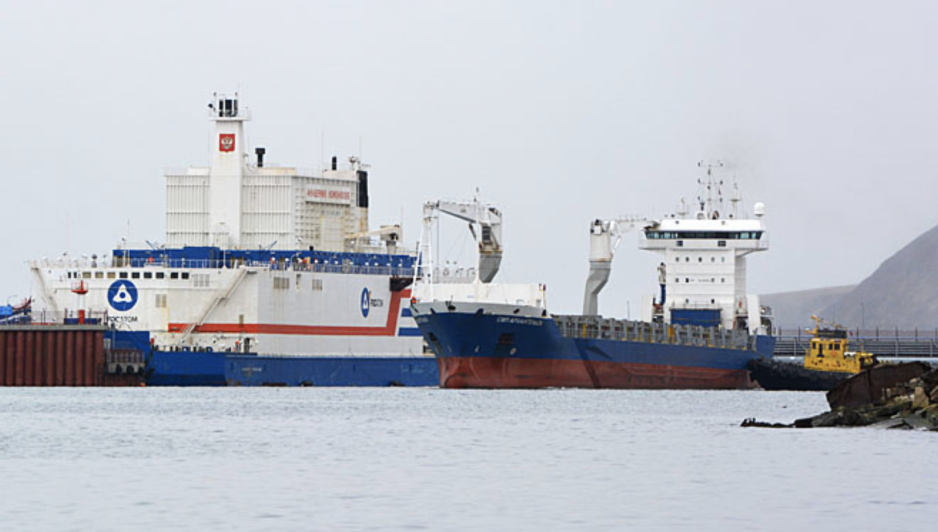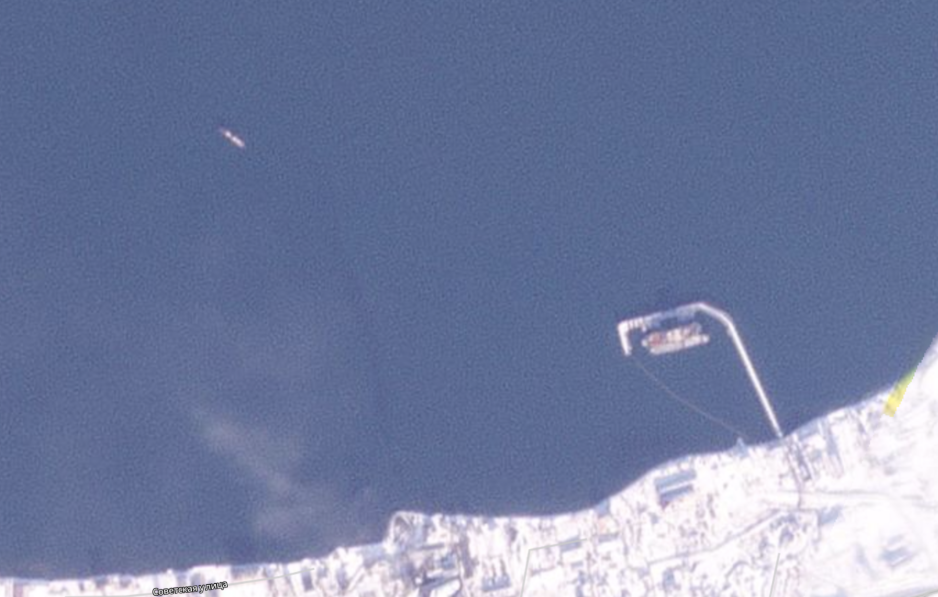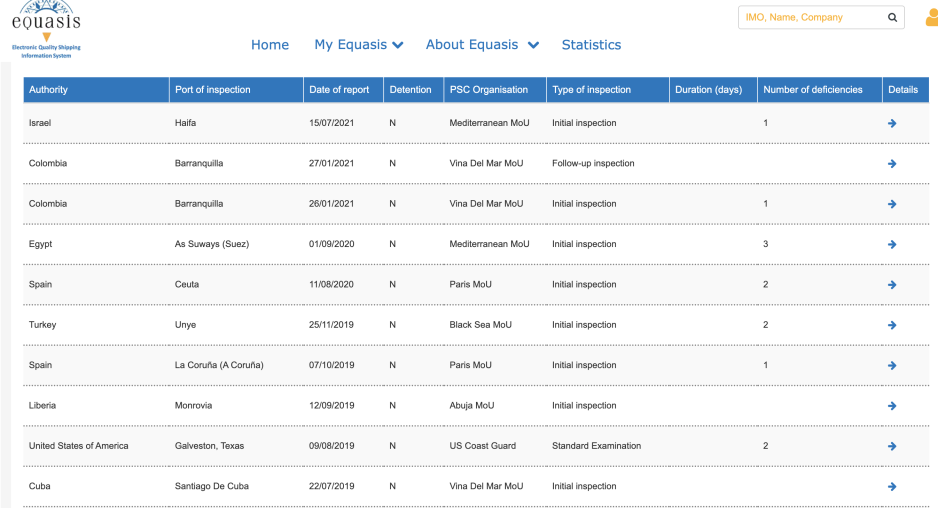Russia Sends Nuclear Fuel Across Arctic on Ship with History of Safety Violations
Weeks after sending crude oil on non-ice class tankers through the Arctic, Russian authorities shipped nuclear fuel across the Northern Sea Route on a cargo ship not specialized in the transport of nuclear fuel. Ship records also show a host of safety deficiencies during past inspections. The nuclear fuel traveled from Murmansk to Pevek to resupply the floating nuclear power plant Akademik Lomonosov.
Article by High North News

Five years after towing the world’s only floating nuclear power plant into the Arctic, Russia’s State Nuclear Energy Corporation, Rosatom, delivered a fresh batch of nuclear fuel to the facility.
The nuclear material traveled along the Northern Sea Route (NSR) from Murmansk to Pevek aboard the cargo ship Smp Arkhangelsk.
Ship records indicate that the vessel has a long history of safety violations and deficiencies recorded during inspections over the last decade. The vessel’s owner, Northern Shipping Company, has also been under sanctions by the US since May 2022.
The transport of nuclear fuel customarily occurs on highly specialized vessels under strict international guidelines. The carrying of nuclear fuel on a conventional cargo ship across the Arctic’s icy waters is a cause for concern, according to industry experts interviewed by HNN.
The nuclear fuel was manufactured by Rosatom fuel company “TVEL” in Elektrostal near Moscow before it was dispatched aboard Smp Arkhangelsk from Murmansk on September 15. The vessel arrived in Pevek 10 days later and took up position next to Akademik Lomonosov.
Based on satellite images analyzed by HNN the transfer of fuel took approximately 10 days.

A history of deficiencies
The vessel, constructed in 2002 by Damen Shipyard in Romania, has passed through the hands of seven different owners before arriving with its current operator, Northern Shipping Company.
Port inspections going back more than a decade reveal violations ranging from missing voyage data recorder, lack of rescue boats and defect fire pumps, to inoperative auxiliary engines and MARPOL pollution prevention violations.
While some of the violations were minor and none were severe enough to necessitate the detention of the vessel, they do paint a picture of an aging ship with ongoing deficiencies. Available public records also do not show any inspections since 2021.

“Considering this a voyage with dangerous cargo, it is pushing the limits,” explains Sigurd Enge, Senior Advisor on Shipping at Bellona Foundation, an international environmental NGO headquartered in Oslo, Norway.
“The risk connected to this vessel, on the Northern Sea Route in October is high, and based on their [safety inspection] track record, is very high,” continues Enge, who is one of the most experienced advisers at Bellona, working on marine safety.
“The Port State Controls with violation indicates that there is a high risk that an incident can occur. And with a history of lack of safety equipment, inadequate propulsion and auxiliary machinery, certificates and fire pumps, an incident can quickly turn into a serious event in terms of firefighting, safety equipment and skills.”

Not following international customs
The transport of nuclear materials in international waters is highly regulated, with a short list of specialized vessels, such as British freighters Pacific Egret or Pacific Grebe, doing the work. Nuclear material must also be stored in highly secured containers.
The use of a ship not specialized in the transport of nuclear fuel shows limited options available to Russia “as there are ships that carry out this type of loading in Europe, for example,” explains Hervé Baudu, Chief Professor of Maritime Education at the French Maritime Academy (ENSM)
“This is clearly a case where Russia is proceeding in its own waters and territories with the means at its disposal. Admittedly, the ship does not comply with international requirements, but let’s hope that the containers carrying the waste or fuel do,” he continues.
Based on the type deficiencies and where they were registered the ship is “not used to international customs and regulations,” explains Baudu.
Risks related to time of year
The vessel’s lower Arc4 ice-class is also a cause for concern, with Enge calling it “not so reassuring.”
“To operate on the NSR at this time of year involves a risk. In October, the ice conditions can change fast, with new ice formation and strong wind and various temperatures the ice cover can move fast.”
“It seems that the authorities are willing to carry out voyages ‘at any cost’.”
Given the possibility of rapidly changing conditions, including weather and ice conditions, “the risk for dangerous cargo transport with not well-equipped ships is unacceptable,” concludes Sigurd.
This holds especially true given Russia’s history related to the dumping of radioactive materials and sunken submarines across the Arctic in the Barents and the Kara Sea.
Pushing ahead despite sanctions
The shipment of nuclear fuel follows the initial transport of crude oil to China across the Arctic on aging non-ice class oil tankers a few weeks ago.
“We are seeing violations of environmental rights with oil tankers from a fleet that is black and potentially dangerous as long as there is war in Ukraine,” elaborates Baudu.
Enge concurs that sanctions have impacted operations on the NSR.
“The need to use the route for transport eastward makes the government more willing to push the limits for safety and “clean and safe operations in general. It seems that the authorities are willing to carry out voyages ‘at any cost’.”
Rosatom and TVEL did not respond to requests for comment.